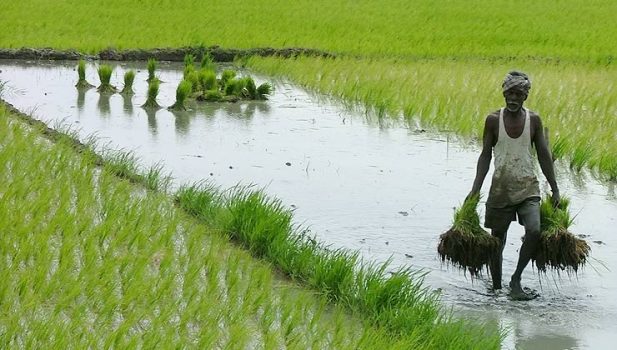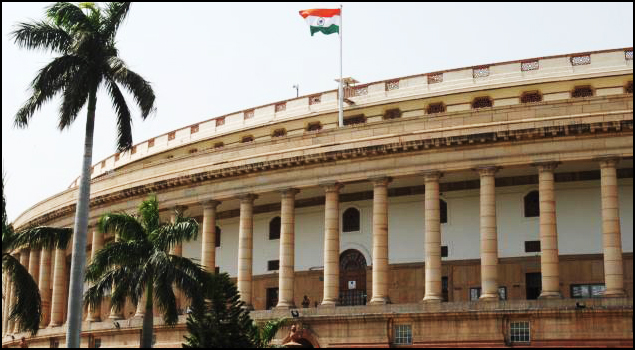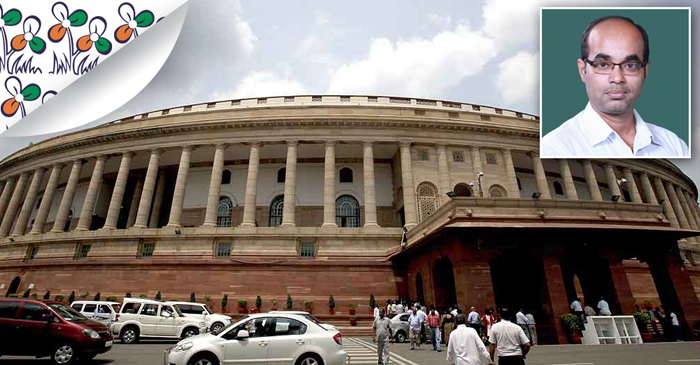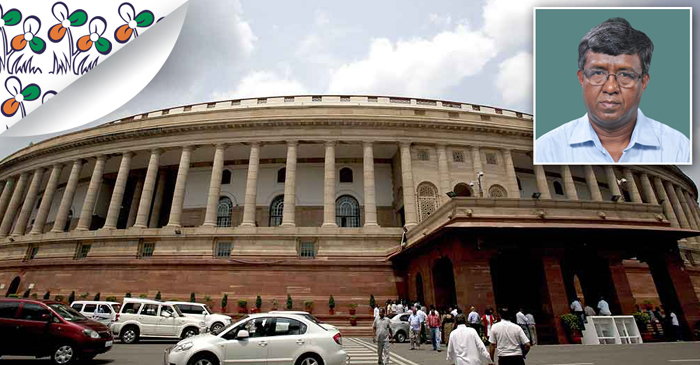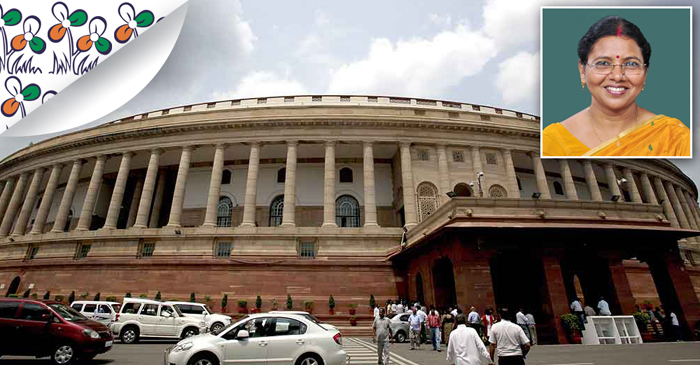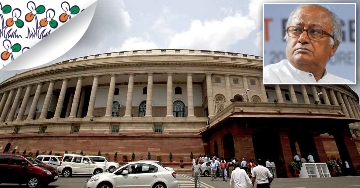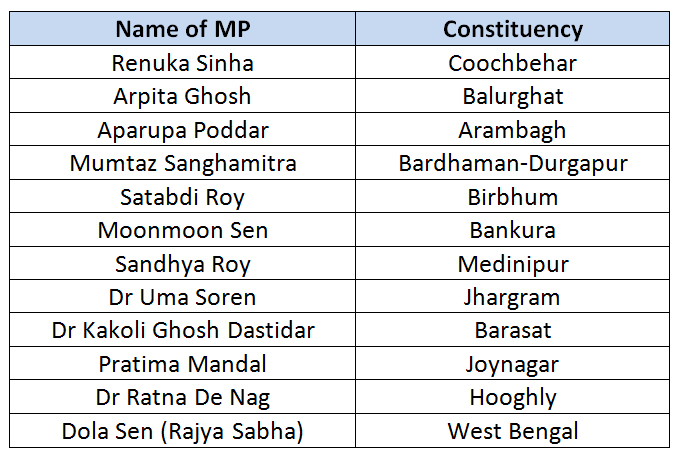Full transcript
Dhanyabad, Sabadhakhyo Mahashoy, Amendment Bill e Haryana, Karnataka ebong Dadra-Nagar-Haveli SC/ST/OBC caste er sonkha 50 theke 58 kora hoyeche. Ei jonne Kendriyo Sorkar ebong Montrike dhayabad. Kintu akta prosno ajker dineo ei somprodayke bridhi kora hochhe.
Aj ami ai onunnoto jatir protinidhi hisebe Banglar Bordhomaner sangsod hosabe ebong ei onunnoto jatir akjon protinidhi hisebe ei gonotontrer mondire apnar samne kichu bolte chai.
Ajke ei onunnoto jati bishesh kore Haryana, Karnataka ebong Odisha r bibhino jelay rehabilitation deoya ache. Kintu egulo charao onek rajyer jemon Andaman theke Paschimbongo, Bihar, Jharkhand ei jayga guloteo ebong aro onanno rajyee aro onek sangsod tader dabi noye bibhinno jati jemon Baisnab, Baul, era onek onunnoto. Eder Jodi ei onunnoto jatir modhye ontorvukto kora hoto tahole onek valo hoto.
Aj Sadhinotar 67 bochor poreo ei SC/ST/OBC somprodaye Amendment 1950 theke 2015 porjonto koto bar je er poriborton hoyeche, ta bole bojhate parbo na. Kintu ete kono upokar hoy ni. Ajo amra dekhte pai prottek barer Amendment Bill er katha bola hoy kintu ta sab pakhir moto katha. Ki unnoyon, sikhha, orthonoitik porikathamor poriborton sab eki buli. Kintu kajer kaj kichu hoy na.
Ei Bill somporke bolte chai ei onunnoto jatir unnoto korte hole sorkar ke tader Budget boraddo barate hobe. Sadhinotar poreo keno ei ontorvukti? Eta bolte hobe, age ja kaj hoyeche ta kajer kaj kichui hoy ni.
Akhono ai jati ke akta certificate er jonne pode pode ghurte hoy. Akta certificate er jonne officerder kache bare bare jete hoy. Apnar kache onurodh ei bishoy ti apni thik korun. Jara ei somprodayer protinidhi tader certificate paoyar jonne eto mehonot keno? Apnar sarkar er ki poddhoti ache er jonne? Ai Amendment Bill e ache akta certificate er jonne sei 1971 er dolil dekhate hobe. Ei bill e ache, 1950 saler dolil dekhate hobe.
Eder bosobash korar ak khana jayga nei. Tara dolil dekhiye SC certificate pabe, er moto dukhho, er moto nirmom, er moto nishthur er kichu hote pare na. Tai apner kache amar onurodh ei jaygatake dekhun.
Jara ontorbhukto ache tader unnoyoner jonno apni ki korchen? Ei jaygata apnake dekhte hobe, sudhu ontorbhukti ghotale hobe na. Sudhu ontorvukti ghotiye, Amendment ghotiye nam kinle hobe na. Dr Babasaheb Ambedkar, Dindayal, onader onek kathai sunchi. Babasaheb Ambedkar er katha puron kora hok. Ambedkar je katha bolechen, Dindayal o sei katha bolechen. Eder kathar modhye farak nei. Tai apnake bolte chai, ei jayga guloke apnake tule dhorte hobe. Ei jayga gulor sothik padakhep nite hobe. Ajke amra jodi ei onunnoto jatir sottikare kichu korte chai, ta hole amader sorbo prothom chai sikhha. Amra jani je jara joto onnunoto sei jati toto osikhhito. Je deshe sikhhar ovab, shei deshe onunnoto loker bash beshi sei desh o sei desh sarbik vabe unnoti korte pare na. Etai amader desher katha. Amra tai apnake bolte chai amader grohonjoggota Budget er madhyome tule dhorte hobe. Budget er modhye tule dhore sei jayga korte hobe.
Apni sune anondo paben amra Shikhasree prokolpo suru korechi class V theke class VIII porjonto chele-meyeder jonno. Amader mukhyomontri Mamata Banerjee sorbostorer nipirito, bonchito manusher jonne je jayga guloke toiri korchen amra takar ovabe ta bhalobhabe korte parchina. Kendriyo onudan pele amra sei jayga guloke ero egiye jete parbo.
Chai ei jatir proti somobedona. Ar tar jonne chai sottikarer sikhha. Ei sikhhake apnader tule dhorte hobe.
Aj era ration babostha theke bonchito, ajo bidyut theke bonchito, ajo era BPL theke bonchito. Sei bonchona jodi thake tahole sudhu Amendment kore apni kichu korte parben na. Sudhumatro rastaghat, ghor bari, jayga jomi esob diye sudhu hobe na.
Apnake sorbo seshe ekta kathai bolte chai, amra jodi tader ei jaygata tule dhorte pari, tahole tader jonno kichu korte parbo. Amra ajo British policy dhore achi. British ra sorbosadharoner modhe Hindu-Muslim vedaved kore 200 bochor rajotto kore geche. Er amra akhono Muchi ke? Hari ke? Dom ke? Kayostho ke? Bramhon ke? Tai niye achi.
Amra tader Bharotbasi bole mone korte pari na. Ar amra akhono jati bole porichoy di, etai amader lojja. Sei jaygatake apnake tule dhorte hobe.
Aj ei bole Sabhapoti Mahashoy ke dhanyabad janiye amar baktabbo sesh korchi.
Dhanyabad.
Translation:
Thank you Deputy Speaker Sir,
I will speak on the Constitution (Scheduled Castes) Orders (Amendment) Bill, 2015, for Haryana, Karnataka, Odisha and Dadra Nagar Haveli. I am thankful to the Government for inclusion the number of community from 50 to 58 under this Bill.
The sad part is even today, on this date we are thinking of these backward classes. As their representative from Bengal’s Bardhaman district, I stand before your Sir, in this Temple of Democracy demanding their demands and rights, through you, I am thankful for the opportunity given to me. I would like to highlight a few points on these backward communities.
Along with the states mentioned in the Bill, we should also take forward the cases of backward classes from other states like Andaman & Nicobar Islands, West Bengal, Bihar, Jharkhand and other States too. The Members from all States should come together and maybe we can add a few more such communities in this group. To mention a few from Bengal – Vaishnav and Bauls should also be included categories.
Even after 67 years of Independence, we are still doing amendments in the SC/ST/OBC categories. From 1950 to 2015 a number of Amendments have been done in this Bill but to what effect I would like to know. Despite several Amendments the same topic of development, education, social and economic upliftment are mentioned again and again without any effect. That is why I want to say, if you are really interested in progress of this community, you have to increase the budgetary allocations.
Even after so many years of Independence, why this inclusion still now? This itself is the prove that this community faces hardship in day to day life so much so even for a certificate, they have to go from door to door. Even if you are an Adivasi, you still have to go to an officer at least 10 to 15 times.
This is to request the Minister to solve this basic issue first. Why so much of hardship in getting such a certificate despite being the representative of the said community? What steps is the Government taking to solve this issue? One is required to show various documents to prove his case, but the persons who do not have proper homes to live how it is expected they will have documents? This is very sad.
Only inclusions will not serve the purpose. Those communities already included should get the facilities and needs for their development should be taken care.
Let’s not take names of Dr Baba Saheb Ambedkar and Dindayal Upadhaya. They have said the same thing but the Government needs to act.
The first step towards the development of this community should be education. It is proven for all round development education is needed. To encourage education Bengal’s Chief Minister has started ‘Shikhyashree’ for students between classes V to VIII. The scheme is for the poor and backward students. She is creating schemes but the Central Government is not giving us enough money. We need more central funds to carry out these developmental works.
These communities are deprived from ration, electricity, BPL. If these are not taken care no matter how many Amendments you do this will not help the communities.
This caste division, started by the British now should end and we should be proud to be Indians instead to being labelled as people from backward communities.

